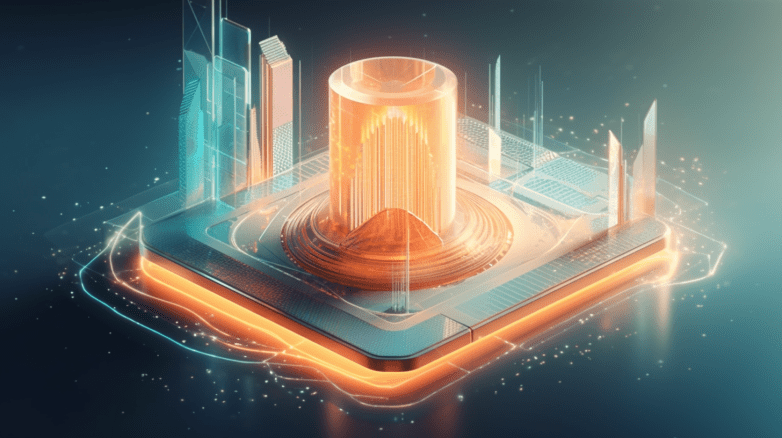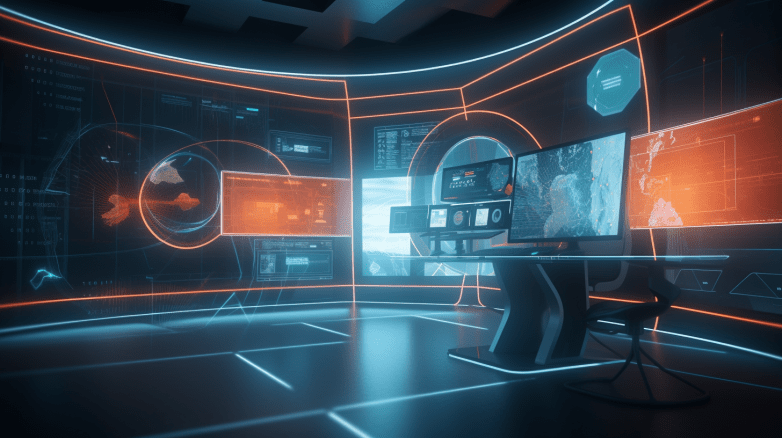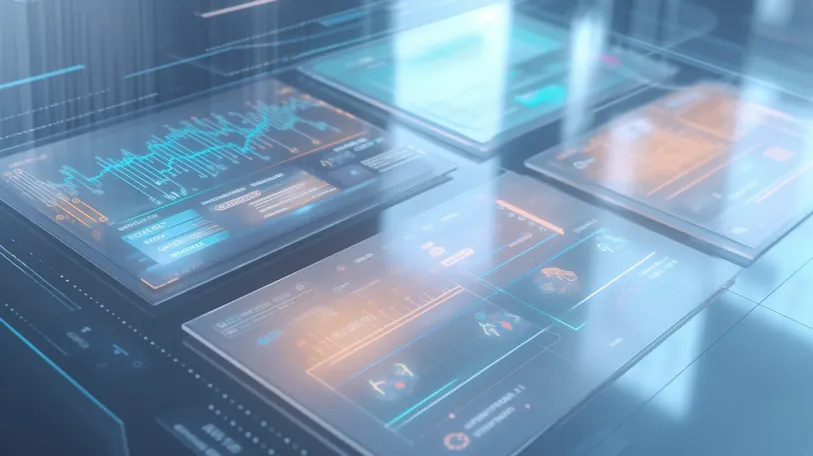Oracles are a crucial idea in the ever-evolving world of blockchain technology. Oracles have grown in significance over time. Oracles are crucial for tying together off-chain data and on-chain smart contracts, enabling practical applications, and improving the efficiency of blockchain networks.
In this in-depth guide, we’ll examine the world of oracles, think about their importance in the blockchain ecosystem, and look at the different oracle types that are out there. As we discuss various use cases for various types of crypto oracles as well as the challenges these oracles face, you will gain a thorough understanding of this crucial aspect of blockchain technology.
What are Oracles and Why are They Needed?
Oracles are external data sources that provide information to smart contracts running on blockchain networks. In simple terms, oracles are the link between off-chain information and on-chain information. Since blockchains are designed to be secure and isolated systems, they cannot access hardware oracles or interact with external data directly.
This limitation presents a challenge for smart contracts that need to make decisions or trigger actions based on real-world events or data. Oracles act as intermediaries supplying data, for smart contracts, bridging the gap between off-chain data sources and on-chain smart contracts, allowing them to communicate and function more effectively.
The need for oracles arises from the inherent limitations of blockchain technology. Blockchains are designed to be tamper-proof and deterministic, ensuring that once a transaction or smart contract is executed, it cannot be altered or reversed.
While this property is crucial for maintaining trust and security in the network, it also means that blockchains cannot natively access or interact with external data sources. Oracles provide a solution to this problem, using blockchain data and enabling smart contracts to access real-world data and make more informed decisions, expanding the range of potential applications for blockchain technology.
Types of Oracles
Oracles play a crucial role in delivering data to smart contracts, and understanding their various types is essential for selecting the most suitable solution for specific use cases. Here, we will explore different types of oracles and compare them based on their characteristics and methods:
Inbound vs. Outbound Oracles
Inbound oracles bring data from external sources into the blockchain, enabling smart contracts and oracle mechanisms to use off-chain information. Conversely, outbound oracles send data from the blockchain to external systems, allowing traditional systems to interact with inbound oracle-chain data.
Software vs. Hardware vs. Human Oracles
Software oracles gather data from online sources, such as APIs or websites, while hardware oracles obtain data from physical devices or sensors, like weather stations or barcode scanners.
Human oracles, on the other hand, involve individuals with specialized knowledge or access to specific information who manually input data into smart contracts oracle problems. Each type offers unique advantages and challenges, depending on the desired data source and use case.
Centralized vs. Decentralized Oracles
Centralized oracles rely on a single, trusted data source to provide information to smart contracts. While they can be efficient and straightforward to implement, they introduce a single point of failure and potential manipulation, posing risks to the data’s security and integrity.
In contrast, decentralized oracle networks (DONs) consist of multiple independent data sources that work together to deliver aggregated, consensus-based information. This approach reduces the risk of manipulation and increases the reliability of the data by minimizing the impact of any single data source oracle network’s failure or dishonesty.

Use Cases of Oracles
Oracles have a wide range of applications across different industries and sectors, thanks to their ability to provide trustworthy and secure data to smart contracts oracle services. In this section, we will explore some of the most notable use cases for oracles:
Decentralized Finance (DeFi)
Oracles play a vital role in the DeFi ecosystem, as they enable various decentralized financial applications to access accurate and up-to-date price data for a range of cryptocurrencies and assets. This access to reliable data is critical for the proper functioning of lending platforms, decentralized exchanges, and derivatives markets.
For lending platforms, oracles ensure that loan collateralization ratios remain accurate, helping to minimize the risk of under-collateralized loans and maintaining the overall stability of the platform. When it comes to decentralized exchanges, oracles provide real-time exchange rates, enabling traders to make informed decisions and execute trades based on current market conditions. In the case of derivatives markets, oracles supply essential pricing data for options, futures, and other financial instruments, allowing these markets to operate smoothly and securely.
Furthermore, oracles contribute to the development of innovative DeFi products and services. For example, they enable the creation of decentralized stablecoins, which rely on accurate price information to maintain their peg to a specific value. Additionally, oracles facilitate the execution of complex financial transactions, such as collateralized debt positions (CDPs) and automated asset management solutions.
Insurance
Oracles have the potential to revolutionize the insurance industry by integrating with smart contracts and automating claims processing and payouts based on real-world events. This transformative approach can lead to increased efficiency, transparency, and customer satisfaction.
For example, consider flight insurance policies. Currently, when a flight is delayed or canceled, policyholders must file a claim, provide documentation, and wait for the insurance company to process and approve the claim before receiving any payout. This process can be time-consuming and frustrating for customers. However, with the integration of oracles and smart contracts, this process can become significantly more streamlined.
In this scenario, an oracle would monitor flight data from various sources, such as airlines and flight tracking systems. If a flight was delayed or canceled, the oracle would provide this information to the associated smart contract. The smart contract, in turn, would automatically execute the terms of the insurance policy, processing the claim and initiating a payout to the policyholder without any manual intervention.
This automation not only saves time and effort for both the insurance company and the policyholder but also reduces the potential for human error and fraud. Moreover, by leveraging decentralized Oracle networks, insurance providers can ensure that the data used to make these decisions is accurate, secure, and tamper-proof.
In addition to flight insurance, oracles can be applied to other types of insurance policies, such as crop insurance, vehicle insurance, and natural disaster insurance, among others. By integrating oracles and smart contracts, the insurance industry can become more efficient, transparent, and customer-centric.
Supply Chain Management
Oracles can significantly enhance supply chain management by providing real-time data on the location, condition, and status of goods in transit. This information can be used to improve supply chain transparency, traceability, and efficiency, ultimately benefiting both businesses and consumers.
By integrating oracles with smart contracts, supply chain processes can be automated based on predefined conditions, such as when a shipment reaches its destination or when a temperature-controlled product remains within a specific temperature range. This automation can help optimize logistics, reduce human error, and streamline payments.
For example, consider a perishable food shipment that requires temperature monitoring throughout its journey. An oracle could gather data from IoT sensors placed within the shipment, monitoring the temperature and ensuring that it remains within the acceptable range. If the temperature goes outside the specified range, the oracle could inform the associated smart contract, which could then trigger a predefined action, such as sending an alert to the responsible parties or withholding payment until the issue is resolved.
Another example is the tracking of goods in a global supply chain. Oracles can provide real-time data on the location and status of shipments, allowing businesses to monitor their products more effectively and make informed decisions regarding inventory management and distribution. This enhanced visibility can lead to reduced lead times, improved customer satisfaction, and increased overall efficiency.
By leveraging oracles in supply chain management, businesses can create more transparent, efficient, and automated systems that benefit all stakeholders involved in the movement of goods.
Prediction Markets
Prediction markets are platforms where participants can bet on the outcomes of future events, such as political elections, sports matches, or financial market movements. Oracles play a crucial role in verifying and reporting the outcomes of these events, ensuring the accuracy and reliability of the data used to determine the results.
Decentralized oracle networks help prevent potential manipulation or bias in the data by sourcing information from multiple, independent data sources. This increased trust and transparency makes prediction markets more attractive and accessible to a broader range of participants.
For example, consider a prediction market where users bet on the outcome of a political election. When the election is concluded, oracles gather data from multiple reputable sources, such as news outlets and government organizations, to determine the winner. This information is then fed into the smart contracts governing the prediction market, which automatically distribute winnings to the correct participants based on the verified outcome.
Another example is a prediction market focused on the performance of financial assets, such as stocks or cryptocurrencies. In this case, oracles would provide real-time price data from various exchanges, allowing smart contracts to settle bets based on accurate and up-to-date information.
By utilizing decentralized oracles, prediction markets can increase trust in their platforms, reduce the potential for manipulation, and create a more fair and transparent environment for participants to engage with.
Gaming and Gambling
Oracles can be employed in decentralized gaming and gambling platforms to provide essential services, such as random number generation and verification of game outcomes. These applications of oracles ensure fairness and transparency in the gaming and gambling space, reducing the potential for cheating or manipulation.
Random number generation (RNG) is a crucial aspect of many gaming and gambling applications, as it ensures that game outcomes are unpredictable and fair. Traditional centralized systems may be vulnerable to manipulation or hacking, leading to concerns about the fairness of the games. Decentralized oracles can provide secure and unbiased RNG services by sourcing random numbers from multiple external sources, making it much more challenging for bad actors to influence the results.
For example, a decentralized lottery platform could use multiple oracles to generate random numbers for each drawing. The oracles would collect data from multiple external sources, such as atmospheric noise or hardware random number generators, and use this data to produce a truly random number. The smart contract governing the lottery would then use this number to determine the winners, ensuring a fair and transparent process.
Additionally, oracles can verify the outcomes of games and other events in the gaming and gambling space. For instance, in a sports betting platform, oracles could gather data from multiple sources, such as news outlets and official sports organizations, to confirm the results of a match. This information would then be used by smart contracts to settle bets and distribute winnings accurately.
By leveraging the power of decentralized oracles, gaming, and gambling platforms can provide a more secure, fair, and transparent environment for their users, increasing trust and confidence in these systems.

Overcoming Challenges and Future Developments
As promising as blockchain oracles are in bridging the gap between the closed blockchain system and the external world, they are not without their challenges. In this section, we will discuss some of the key obstacles and potential solutions for enhancing the functionality and adoption of blockchain oracles in the future:
- Reliability and Trust: Ensuring the accuracy and reliability of data provided by oracles is crucial to the success of smart contracts that rely on them. Decentralized oracles can help mitigate the risks associated with centralized data sources, but they still need to prove their trustworthiness and resilience against potential attacks or manipulation. Research and development of novel consensus mechanisms and reputation systems may help address these concerns.
- Scalability and Performance: As the demand for oracles grows, so does the need for efficient and scalable solutions that can handle high volumes of data requests and provide timely responses. Developing scalable oracle networks and optimizing their performance will be essential in meeting the needs of increasingly complex and data-intensive applications.
- Privacy and Security: Ensuring the privacy and security of sensitive data transmitted by oracles is another critical challenge. Advances in cryptography, such as zero-knowledge proofs and secure multi-party computation, may offer solutions to protect sensitive information while still allowing it to be used by smart contracts.
- Interoperability: As the blockchain ecosystem continues to expand, the need for oracles that can interact seamlessly with various blockchains, data sources, and external systems will become increasingly important. Developing standards and protocols for cross-chain communication and data exchange will be essential in promoting the widespread adoption and integration of oracles.
As the blockchain space continues to evolve, so too will the role of oracles. By addressing these challenges and driving innovation in the field, blockchain oracles have the potential to become an integral part of the decentralized future, enabling a new era of secure, transparent, and automated systems powered by blockchain technology.
Conclusion
Oracles play a vital role in connecting the decentralized world of blockchain with the external data and systems required for smart contracts to function effectively.
By providing a reliable and secure means of both accessing data and transmitting real-world data, oracles have the potential to revolutionize numerous industries and use cases, such as decentralized finance, prediction markets, and supply chain management.
As we move further into 2023, it is clear that centralized and decentralized oracles will continue to be an essential component of the blockchain landscape, driving innovation and growth in various sectors. By staying informed and engaged with the latest developments in oracles, we can ensure that we are well-equipped to navigate and benefit from the exciting opportunities that lie ahead in the truly decentralized oracle future.






